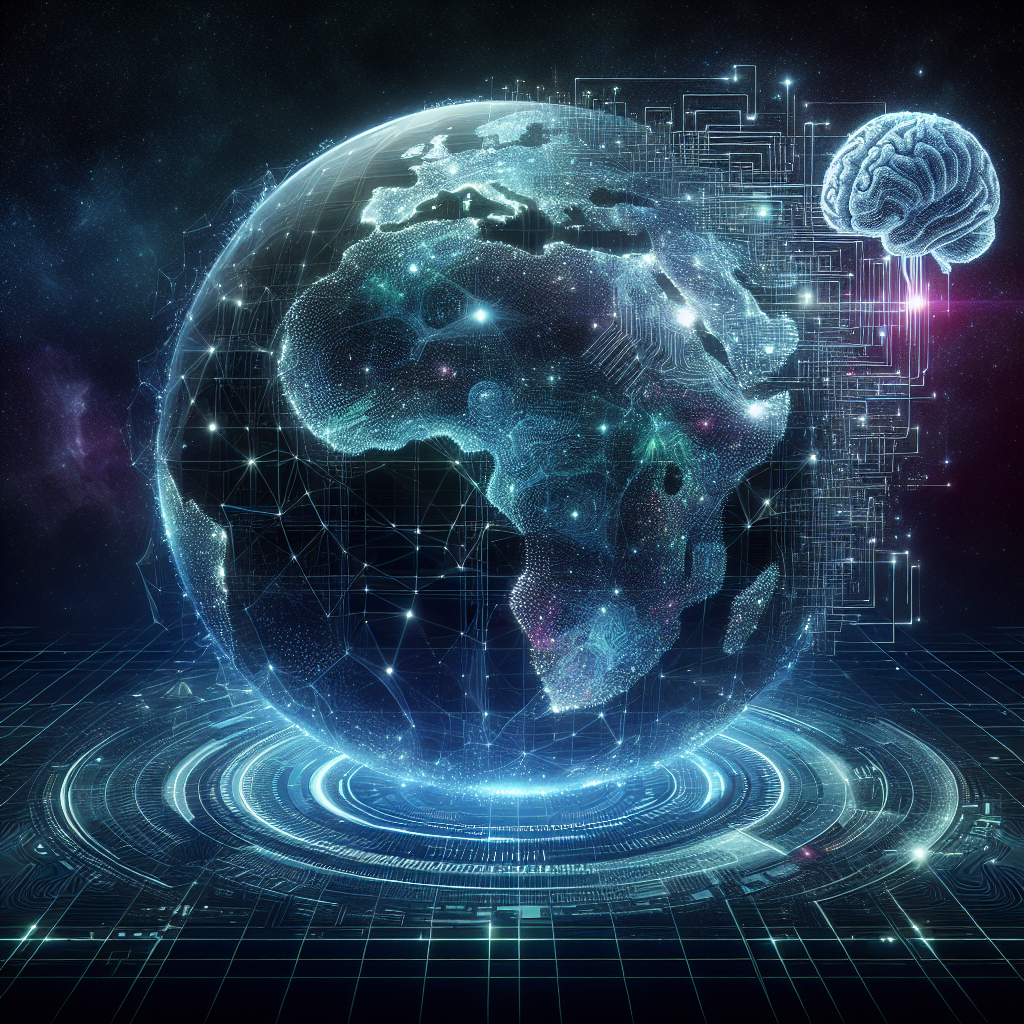From Sci-Fi to Reality: How AGI is Shaping the World Around Us
Artificial General Intelligence (AGI) has long been a concept explored in science fiction novels and movies. From sentient robots to super-intelligent computers, the idea of AGI has captured the imaginations of storytellers and audiences alike. However, in recent years, AGI has transitioned from the realm of fiction to reality, with advances in technology bringing us closer to creating machines that can think and learn like humans.
In this article, we will explore the current state of AGI technology, its potential applications, and the impact it is having on the world around us. We will also address some common questions and concerns about AGI, and discuss the ethical implications of creating machines that are as intelligent as humans.
What is AGI?
AGI refers to artificial intelligence that possesses the ability to understand and learn any intellectual task that a human being can. Unlike narrow AI, which is designed for specific tasks like playing chess or driving a car, AGI has the potential to excel at a wide range of cognitive tasks and adapt to new situations without the need for human intervention.
The development of AGI is considered a significant milestone in the field of artificial intelligence, as it represents a leap towards creating machines that can truly think and reason like humans. While AGI is still in its early stages of development, researchers and scientists are making rapid progress in creating intelligent systems that can learn and adapt to complex environments.
Applications of AGI
The potential applications of AGI are vast and varied, with the technology having the potential to revolutionize industries ranging from healthcare to finance. Some of the key areas where AGI is expected to have a significant impact include:
Healthcare: AGI can be used to analyze medical data and assist healthcare professionals in diagnosing diseases, developing treatment plans, and predicting patient outcomes. By leveraging the power of AGI, doctors can make more accurate and timely decisions, leading to improved patient care and outcomes.
Finance: AGI can be used to analyze financial data and predict market trends, enabling investors to make smarter investment decisions. Additionally, AGI can help financial institutions detect fraud and money laundering, improving the security and integrity of the financial system.
Transportation: AGI can be used to develop autonomous vehicles that can navigate complex environments and make split-second decisions to avoid accidents. By integrating AGI into transportation systems, we can create safer and more efficient modes of transportation that reduce traffic congestion and emissions.
Education: AGI can be used to develop personalized learning experiences for students, adapting to their individual needs and learning styles. By leveraging the power of AGI, educators can create more engaging and effective educational materials that help students achieve their full potential.
Ethical Implications of AGI
While the potential benefits of AGI are vast, there are also significant ethical implications that must be considered as we continue to develop and deploy intelligent systems. Some of the key ethical concerns surrounding AGI include:
Privacy: AGI systems have the potential to collect and analyze vast amounts of personal data, raising concerns about privacy and data security. It is important to establish clear guidelines and regulations to protect the privacy of individuals and ensure that their data is used responsibly.
Bias: AGI systems are only as good as the data they are trained on, and there is a risk that biases present in the data could be amplified by intelligent systems. It is essential to address these biases and ensure that AGI systems are fair and equitable in their decision-making processes.
Autonomy: AGI systems have the potential to make decisions autonomously, raising concerns about accountability and transparency. It is important to establish clear guidelines for how AGI systems should be programmed and monitored to ensure that they act in accordance with ethical principles.
Job Displacement: As AGI systems become more advanced, there is a risk that they could displace human workers in certain industries. It is essential to consider how we can retrain and reskill workers to adapt to the changing labor market and ensure that the benefits of AGI are shared equitably.
FAQs
Q: How close are we to achieving AGI?
A: While significant progress has been made in the field of artificial intelligence, we are still a long way from achieving true AGI. Researchers and scientists are working tirelessly to develop intelligent systems that can learn and adapt like humans, but there are still many technical and ethical challenges that must be overcome.
Q: What are some examples of AGI in use today?
A: While true AGI does not yet exist, there are many examples of artificial intelligence systems that demonstrate some level of general intelligence. For example, virtual assistants like Siri and Alexa can understand and respond to natural language queries, and self-driving cars can navigate complex environments autonomously.
Q: What are the potential risks of AGI?
A: Some of the potential risks of AGI include job displacement, privacy concerns, bias in decision-making, and the potential for autonomous systems to act in ways that are harmful or unethical. It is essential to address these risks proactively and develop guidelines and regulations to ensure that AGI is developed and deployed responsibly.
In conclusion, AGI represents a significant milestone in the field of artificial intelligence, with the potential to revolutionize industries and improve the quality of life for people around the world. While there are significant ethical implications that must be considered as we continue to develop and deploy intelligent systems, the benefits of AGI are vast and varied. By addressing these challenges and working collaboratively to create a future where AGI is used responsibly and ethically, we can harness the power of intelligent systems to create a better world for all.

